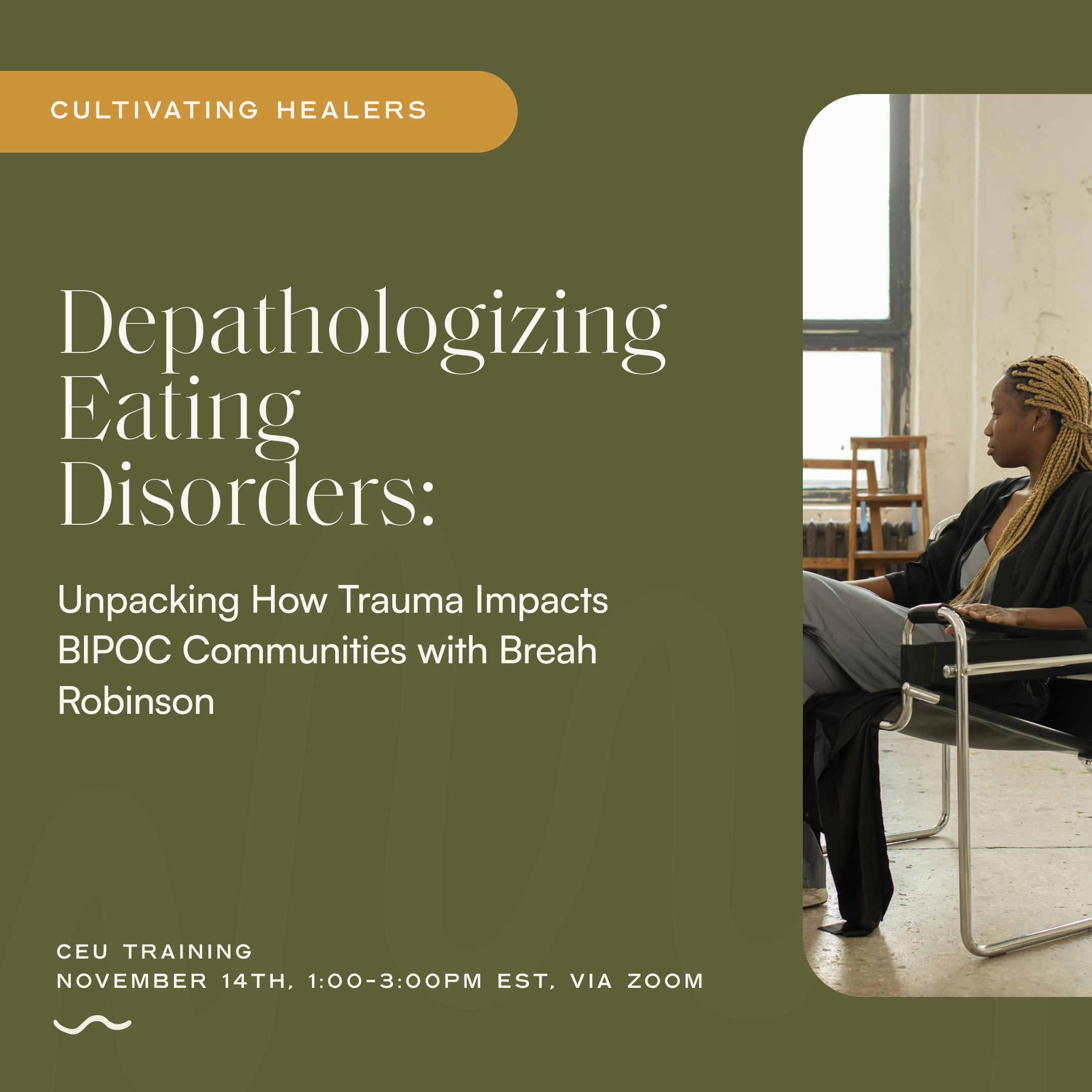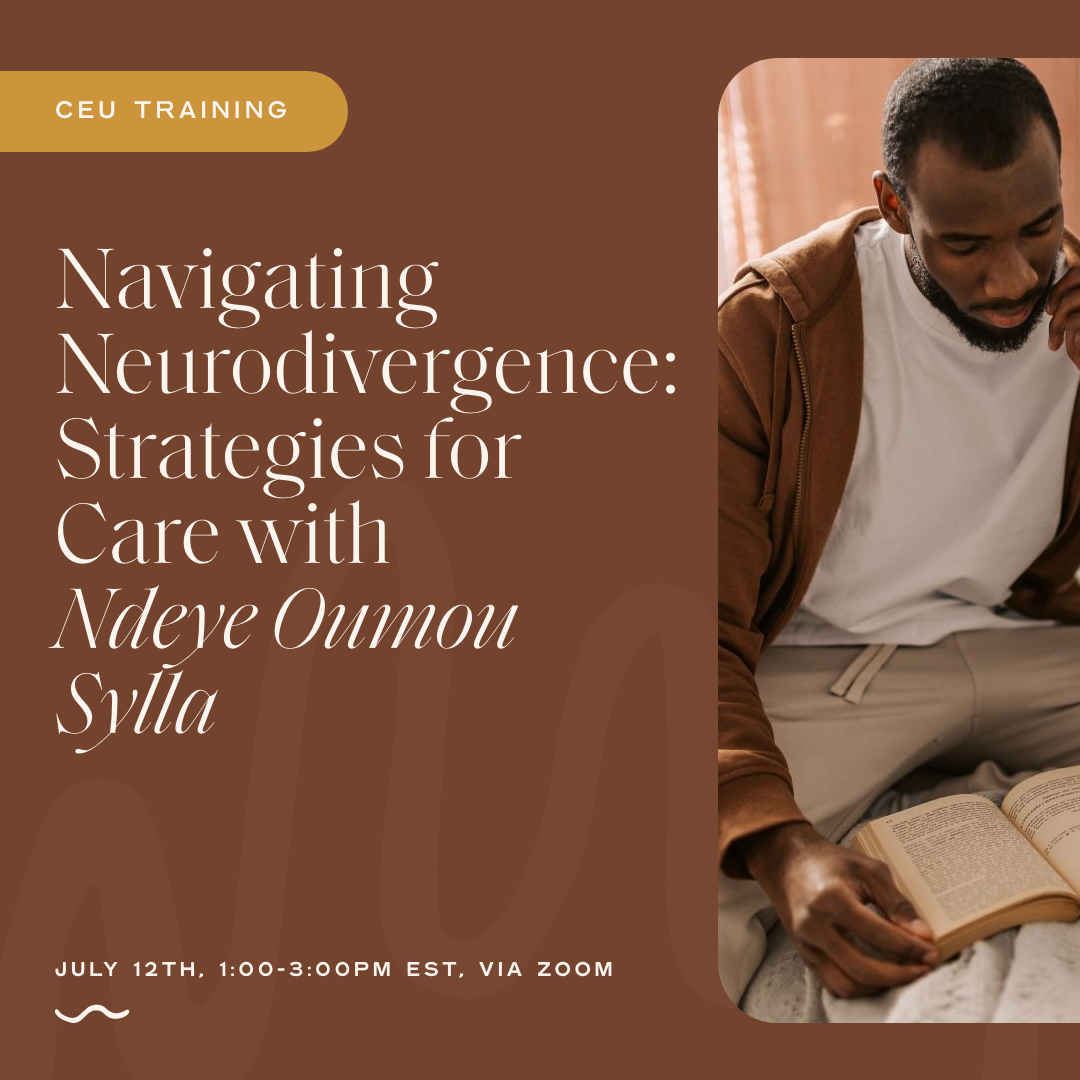-
Breah Robinson is a licensed clinical social worker and the founder and CEO of Embodied Care Wellness, a wellness community rooted in body liberation. Breah’s work is central to supporting women in gaining access to care and resources to improve their well-being and elevate their quality of life. She specializes in body image trauma and eating problems specific to Black women and is a healer, activist, and advocate.
As a trainer and coach, her expertise spans over a decade. As the architect of the Embodied Care Foundations Training, Breah's curriculum reflects her deep commitment to empowering individuals with the tools they need to cultivate sustainable wellness practices and live liberated lives. Motivated by her journey of liberation, Breah developed the Embodied Care framework to support women reclaiming their bodies and revolutionizing their wellness practices. She founded The Embodied Care Collaborative Network and The Embodied Care Training Institute to help educate other therapists and health and wellness providers on how to use Embodied Care to promote body liberation in their practices. Breah is a proud graduate of Bennett College and The University of Illinois at Chicago. She is trained in Somatic Therapy and is EMDR certified. She is an EMDRIA-approved Consultant-in-Training.
-
Due to the nature of this product, all sales are final and we are unable to offer refunds. If you are no longer able to attend a group, email us at info@kenyacrawford.com and we can transfer your confirmation to the following group.
-
Kenya Crawford, LMHC is recognized by the New York State Education Department's State Board for Mental Health Practitioners as an approved provider of continuing education for licensed mental health counselors. #MHC-0269. Kenya Crawford, LMHC is recognized by the New York State Education Department's State Board for Social Work as an approved provider of continuing education for licensed social workers #SW-0736.
Kenya Crawford, LLC has been approved by NBCC as an Approved Continuing Education Provider, ACEP No. 7470.Cultivating Healers is approved by the American Psychological Association (APA) to sponsor continuing education for psychologists. Cultivating Healers maintains responsibility for this program and its content.
What if my profession isn’t listed?
If your profession isn’t specifically mentioned, you may still be eligible to claim reciprocity for CEUs if your accrediting body recognizes credits from any of the boards listed above.Transfer Policy
If you are no longer able to attend a scheduled training or group session, you may request a one-time transfer to a future session of the same group or training.
To request a transfer: Email info@kenyacrawford.com with your name, order confirmation number, and the session you originally registered for. Indicate which future session you would like to transfer your confirmation to. Requests must be made at least 48 hours before the session start date to be eligible for transfer.
Transfers are subject to availability and must be used within six months of the original purchase date. For any additional questions regarding this policy, please contact us at info@kenyacrawford.com
-
Recording Policy
If you are unable to attend the live training session, you may request access to a recording of the session. Please note the following guidelines:
Access & Expiration: The recording link will be available for 30 days from the date of issuance. After this period, the link will expire, and we will not be able to reissue access. We strongly encourage you to watch the recording as soon as possible.
CEU Credit Eligibility: While the recording provides valuable insights, CEU credits can only be awarded to participants who attend the entire live training session. This policy is mandated by our CEU provider to ensure full engagement with the course material.
Requesting a Recording: If you require access to a recording due to unforeseen circumstances, please email info@kenyacrawford.com with your name and registration details. For further inquiries regarding recordings, please reach out to info@kenyacrawford.com.












